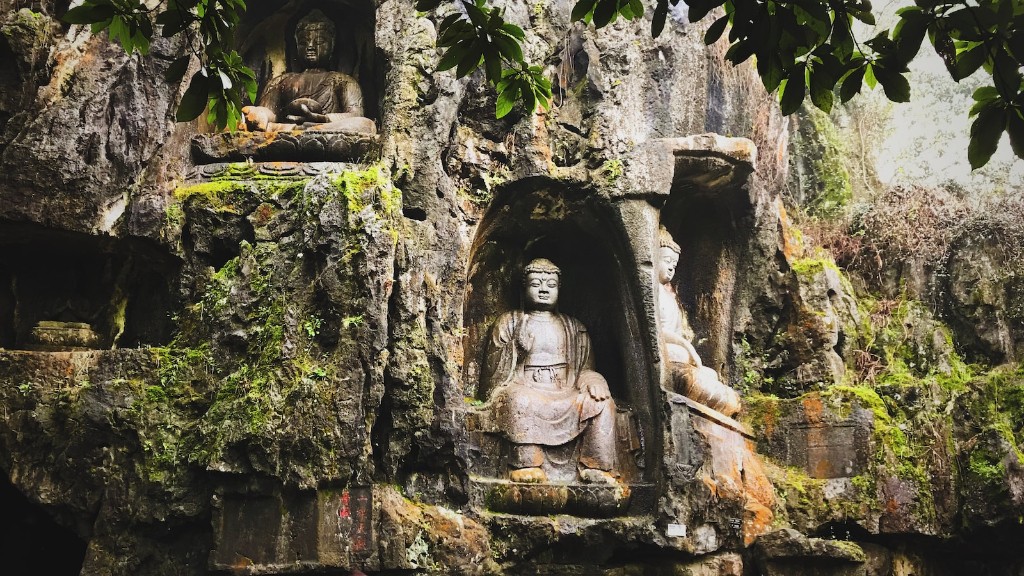Buddhism is a religion and philosophy founded in the 5th century BCE by Siddhartha Gautama, the Buddha, born a prince of the Shakya clan in ancient India. Much of the information about Siddhartha Gautama’s early life comes from legends. It is said that he was born a wealthy prince but left his palace and privileges at 29 in search of spiritual liberation. He spent six years as an ascetic, trying different teachings and meditative practices but was not satisfied. He then famously sat in meditation under a tree and attained enlightenment. After this, he spent the rest of his life teaching the Dharma, or Buddhist teachings, in an effort to help others achieve liberation from suffering.
There is no one answer to the question of how to start practicing Buddhism, as there is no one way to practice Buddhism. However, some things that might be helpful for someone starting out on the Buddhist path would be to read about the basic tenets of Buddhism, to find a teacher or community with which to practice, and to begin meditating.
The best way to start practicing Buddhism is to find a teacher and take classes. You can also read books on the subject, but it is important to have someone to guide you through the practices. There are also online resources that can be helpful.
There are four basic principles of Buddhism that are called the Four Noble Truths. These truths are that life is suffering, that suffering is caused by attachment and desire, that suffering can be ended by freeing oneself from attachment and desire, and that there is a path to freedom from suffering.
The Eightfold Path is the fourth of the Four Noble Truths and is the way to end suffering. The Eightfold Path is made up of eight parts: right understanding, right thought, right speech, right action, right livelihood, right effort, right mindfulness, and right concentration.
Each of these eight parts is interrelated and depends on the others. For example, right understanding leads to right thought, which leads to right speech, and so on.
How do I start being a Buddhist?
It is not necessary to be “born” into Buddhism or to have Buddhist parents in order to identify as a Buddhist. People of any race, nationality, social class, or gender can participate in Buddhism. Taking refuge in the Triple Gem, or the Buddha, Dharma, and Sangha, is a common ceremony for those who wish to identify as Buddhists.
Buddhism is a religion and philosophy that emphasizes the importance of mindfulness and compassion. There are many ways to practice Buddhism in daily life, including meditating, being mindful of our actions, and offering food to others. By cultivating a kind heart and living in an interdependent world, we can make a difference in our own lives and in the lives of others.
Can anybody be a Buddhist
Anyone can be a Buddhist. An individual does not particularly have to be born or raised in Buddhist culture nor do anyone’s parents have to be Buddhist. The said individual can be of any race, region, gender, socio-economic background, etc.
Buddhists monks have a very strict daily schedule that revolves around meditation, study of scriptures, and taking part in ceremonies. Monks live in Buddhist monasteries (or “gompas”), and there are Buddhist shrines and stupas all over the world.
What is forbidden in Buddhism?
The precepts are basic guidelines for living a moral and ethical life according to the Buddhist tradition. They are meant to help develop a mind and character that is conducive to making progress on the path to enlightenment. The precepts include commitments to abstain from killing living beings, stealing, sexual misconduct, lying and intoxication.
Most Buddhists believe that coffee in moderation is perfectly fine, as long as it does not interfere with the fifth precept, a guideline of morals for practicing Buddhists. The jury is still out on coffee consumption, but most Buddhists believe that moderate coffee consumption is not harmful and can actually be beneficial.
Can Buddhists drink alcohol?
It is important to remember that Buddhism is a religion that teaches its followers to be mindful of their actions and to avoid anything that could cause them to act carelessly. With this in mind, it is not surprising that Buddhism would have a strong impact on alcohol use. Buddhists typically avoid drinking alcohol altogether, as it is seen as a substance that can cloud one’s judgment and lead to carelessness. In addition, many Buddhists also believe that using other drugs can have a similar effect, and so they would likely avoid using them as well.
Buddha’s 7 Rules of Happiness are a great way to find true happiness in life. By following these rules, you can be sure to avoid many of the pitfalls that can lead to unhappiness.
Clear Viewpoint: Don’t just believe anything just because you saw it or you heard it. Take the time to question what you see and hear, and only believe it if it makes sense to you.
Values: We end up digging a hole so deep that it is hard for us to find a way back home. Be sure to live your life in accordance with your values, so that you don’t get lost along the way.
Words that Inspire: Actions in Positive Direction. Be sure to surround yourself with words that inspire you to take positive action in your life.
Efforts with Impact: Be Mindful. Make sure that your efforts are having a positive impact on your life, and be mindful of the negative impact that they might have.
Concentrate Right: Be sure to focus your attention on the things that are most important to you. Don’t let distractions pull you away from what’s truly important.
What is the daily Buddhist prayer
It is my hope that every day I am able to give with joy, form affinity with others, and practice loving-kindness, compassion, joy, and equanimity. I also hope to treat people with tolerance and generosity every day.
No, Buddhists do not pray in the sense of petitioning or beseeching a higher power. However, they do have devotional practices which could be seen as a form of prayer. One such practice is radiating loving-kindness to all living beings. This practice is believed to have a positive impact on those beings.
Can a Buddhist smoke?
Many monks feel that smoking is not an appropriate practice and that there should be a Buddhist law that recommends they do not smoke. However, most monks have little understanding of the specific detrimental effects smoking has on them, as well as the effects of second hand smoke.
While Buddhist women must go through an administrative process to marry men of other religions, if both partners are non-Buddhist, their marriage falls under customary practices. Julie and Rocky’s marriage was presided over by an imam; Julie was not required to convert to Islam. This is an example of a marriage between two non-Buddhists that falls under customary practices.
What do Buddhists eat
A Buddhist diet is a great way to improve your health and well-being. The plant-based approach is rich in nutrients and antioxidants, which can help protect your body against disease. Additionally, a plant-based diet is typically lower in calories and fat than a diet that includes animal products, making it a good choice for those looking to lose weight or maintain a healthy weight.
The Five Precepts are basic guidelines for living a moral and ethical life. They are:
1. Refrain from taking life
2. Refrain from taking what is not given
3. Refrain from the misuse of the senses
4. Refrain from wrong speech
5. Refrain from intoxicants that cloud the mind.
These precepts help us to live in a way that causes the least harm to others and to ourselves. They remind us to be mindful of our actions and their consequences.
What are the 3 main Buddhist beliefs?
Buddhism is a religion that is based on the teachings of Siddhartha Gautama. The main principles of this belief system are karma, rebirth, and impermanence. Karma is the belief that your actions in this life will determine your future in the next life. Rebirth is the belief that you will be reborn into another body after you die. Impermanence is the belief that everything is constantly changing and nothing is permanent.
These are the most serious offences in Buddhism and should be avoided at all costs.
Final Words
The best way to start practicing Buddhism is to find a teacher or path that speaks to you and to begin following the practices and teachings. There is no one correct way to practice Buddhism, so you can tailor your practice to fit your own needs and interests. However, some basic tenets of Buddhism include the Four Noble Truths, the Eightfold Path, and the middle way between extremes. You can learn more about these concepts by reading about them or taking a class on Buddhism. You might also consider attending a retreat or meditation workshop to get started.
There is no single answer to this question as it depends on the individual and their specific circumstances. However, some tips on how to get started practicing Buddhism could include studying the religion’s core teachings, attending a local Buddhist temple or meditation center, and practicing mindfulness in daily life. Whatever approach is taken, the key is to be patient and dedicated in order to learn and grow in one’s Buddhist practice.



